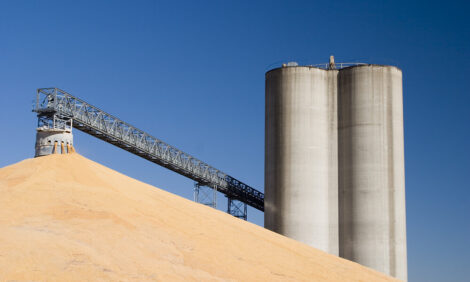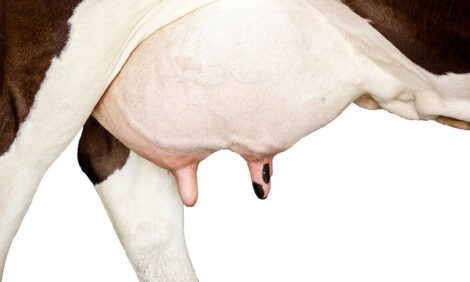



Scottish dairy farmers urged to get ahead of the curve on carbon
70 farmers attended the open-farm dairy dayScotland's dairy farmers have been urged to “get ahead of the curve” when it comes to implementing technical efficiency measures to help reduce their carbon footprint, instead of waiting for policy to catch up, according to a press release from Scotland’s Rural College (SRUC).
This was one of the take-home messages delivered to around 70 farmers who attended an open-farm dairy day organised by SAC Consulting, part of Scotland’s Rural College in Wigtownshire. The ‘Chewing the Cud About Dairy Cows and Carbon’ event centred around equipping farmers with knowledge and tools to practically implement on their farm, which would help reduce emissions and drive overall productivity.
During visits to different workshops over the course of the day, farmers heard from a range of experts offering advice on improving soil health and nutrient management planning, to calf rearing, feed efficiency and renewables opportunities.
The workshops took place on the host farm Culscadden, where Peter and Sarah Simpson have built up their milking herd to 1,000 cows, breeding all their own replacements and selling 750 Angus beef cross calves to Marks and Spencer, annually.
“Climate change is massively important to us as a society and to us as farmers who are going to have to farm in the new environment and we have a role to play in reducing our emissions and being part of the solution, both in terms of sequestration and reducing our own emissions,” said Sarah.
“The dairy sector not only produces milk, but we produce over 25% of Scotland’s beef. We see real opportunities that we can provide, in producing a climate friendly solution to what the supply chain requires.”
Dumfries and Galloway based consultant, Lorna Galloway, told farmers that with the changes coming in agricultural policy: carbon audits, soil sampling, and nutrient management plans will soon become part of routine compliance with regulations.
“My advice to you is to get ahead of the curve and get to grips with the information you are going to be gathering before we are in a position where it is compulsory,” she said.
SRUC Dairy nutritionist Professor John Newbold told farmers that feed additives would not be a “magic solution or silver bullet” in reducing emissions but could be part of a wider set of tools in their armoury.
He spoke of a new additive which should be available in the UK in 2023 called Bovaer which is already being rolled out in Europe and has been found to reduce methane emissions in dairy cattle by 30 per cent.
Senior Renewables Consultant John Farquhar advised farmers who haven’t done so already, to install an energy meter and measure what they have, before exploring what renewable options might fit their operation.
“The viability of installing solar PV is back and it is a win-win to dairy farmers who have high energy requirements, as it should lower energy costs and lower their carbon footprint,” he said.
Jo Wallace of Machar’s Vets talked the delegates through Culscadden Farm’s youngstock rearing process and explained that consistency was key, with strict protocols in place for calf rearing, colostrum intake and quality and hygiene. They are achieving an age at first calving of 23.6 months and there is proactive genomic testing in place with a focus on high fertility, and longevity.
During a fiery panel session in the afternoon which addressed the topic “Science, Policy and Preparing for a Sustainable Future”, dairy industry commentator Chris Walkland warned that dairy farmers could be pushed out of business, if future farming policy continues to favour carbon mitigation over food production.
He argued that there is too much focus on how many tonnes of carbon a farm produces, while ignoring other important outputs, such as how many families each farm feeds. He said: “If we carry on the direction of travel we are on now, we will know exactly how much carbon has gone in to making products that used to be on supermarket shelves, that aren’t there anymore because they have driven you all out of the industry and I think policy makers need to be aware of that.”
Agricultural Economist Steven Thomson from SRUC said that dairy farmers were further down the track with implementing technical efficiencies than other farming systems and should be acknowledged for it.
“As we have seen today at Culscadden, many dairy farmers are addressing soil compaction, methane production, feed efficiency ratios, calving at two years old, looking at reduced mortality levels, all of these elements help you reduce your carbon footprint and those are the types of measures that the Scottish Government is looking at,” he said, adding that some of these would feature as future payment conditions.
“Many of you are already achieving these conditions which is why all the discussions I am having with the Scottish Government are about recognising those that are already achieving. Historically, in policy terms, farmers got paid to change or improve, but it should be about you achieving.”


